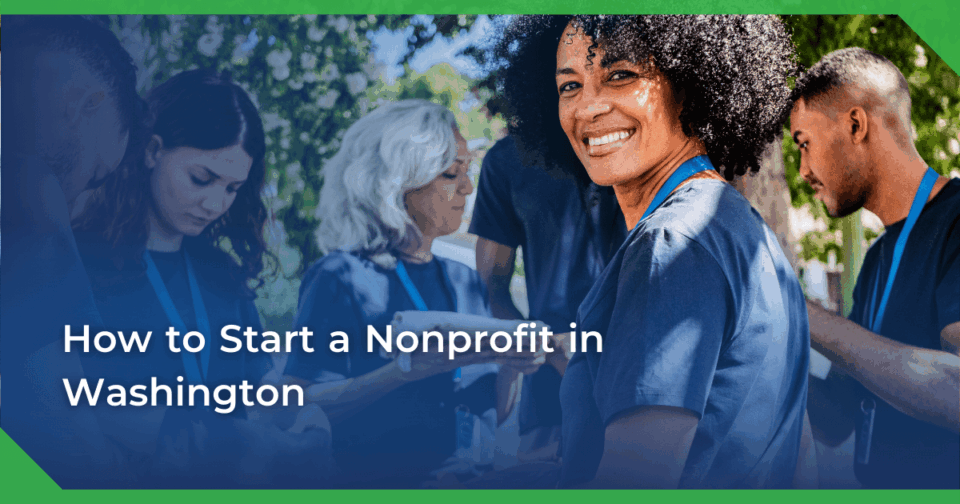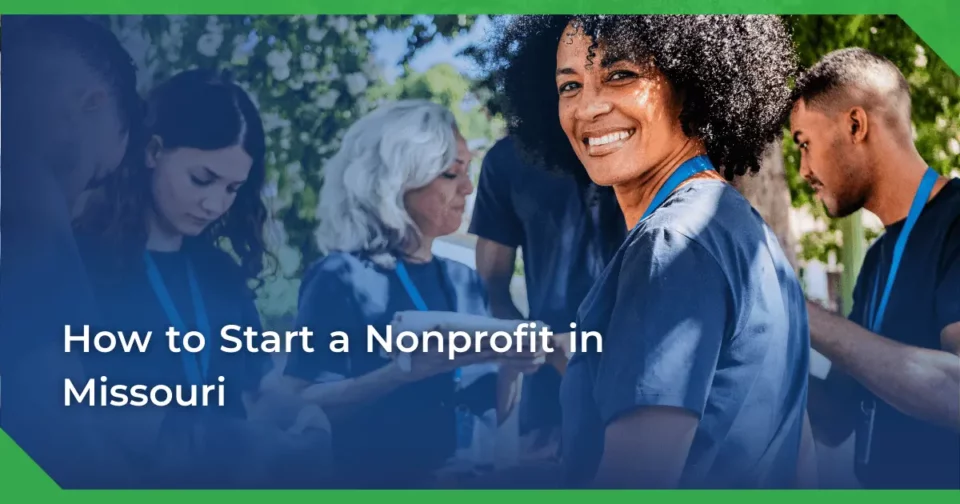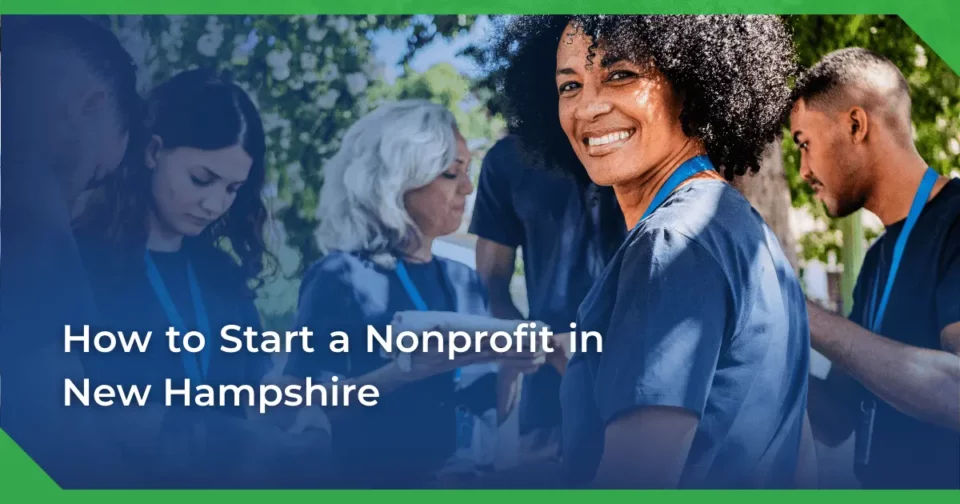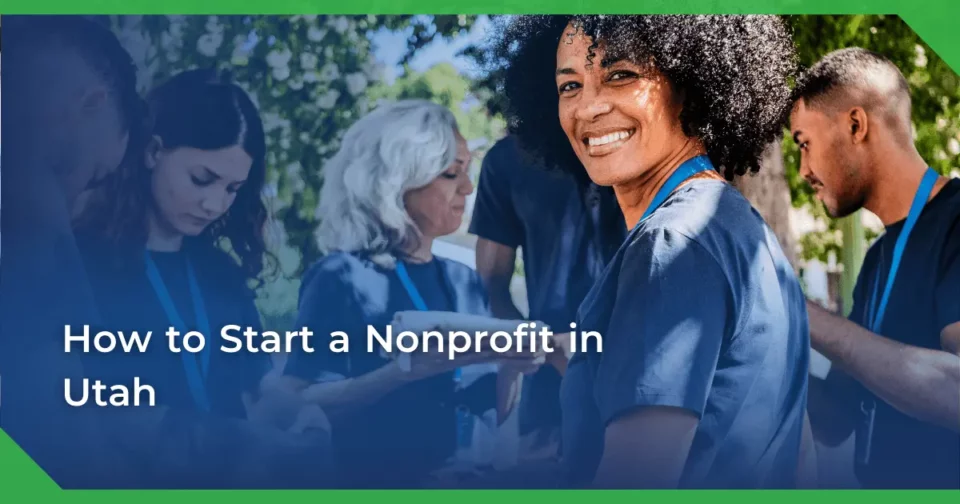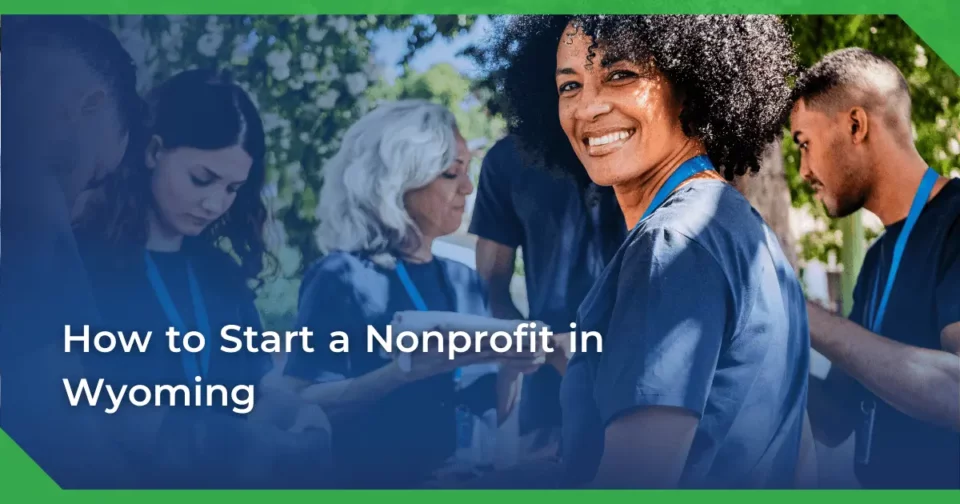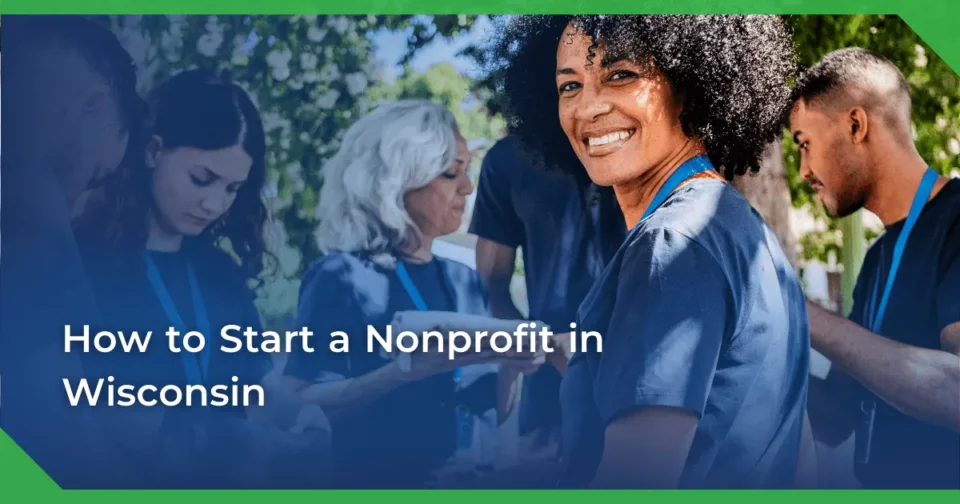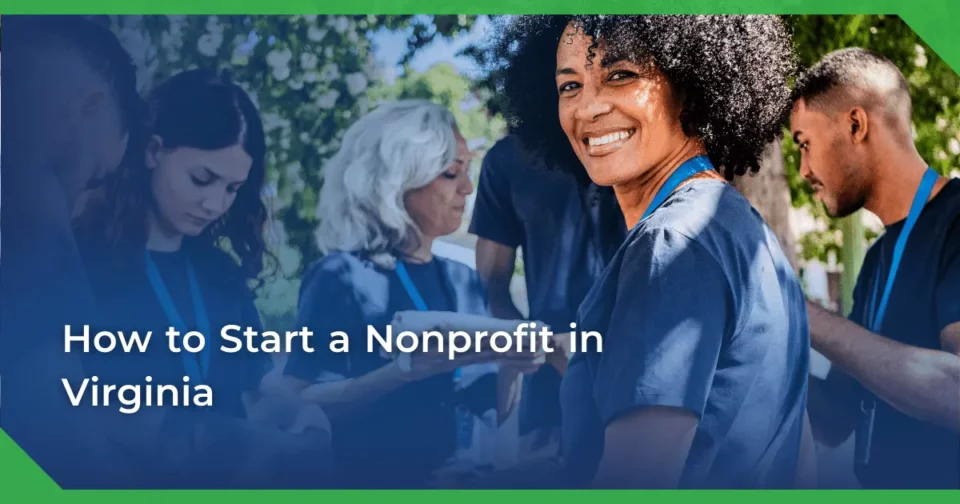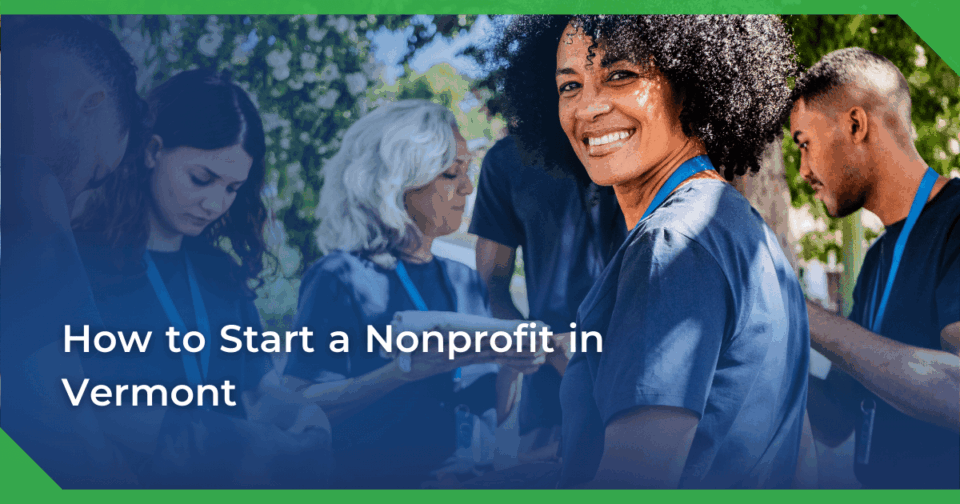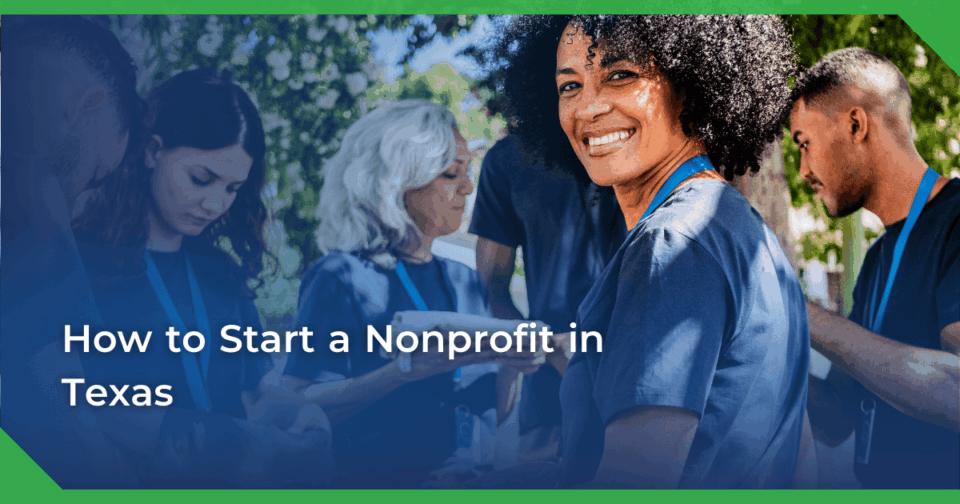
How to Start a Nonprofit in Delaware: A Step-by-Step Guide for First-Time Founders
August 26, 2025
How to Start a Nonprofit in Georgia: Expert Step-by-Step Guide
August 26, 2025How to Start a Nonprofit in Florida: A Beginner’s Step-by-Step Guide (That Actually Works)
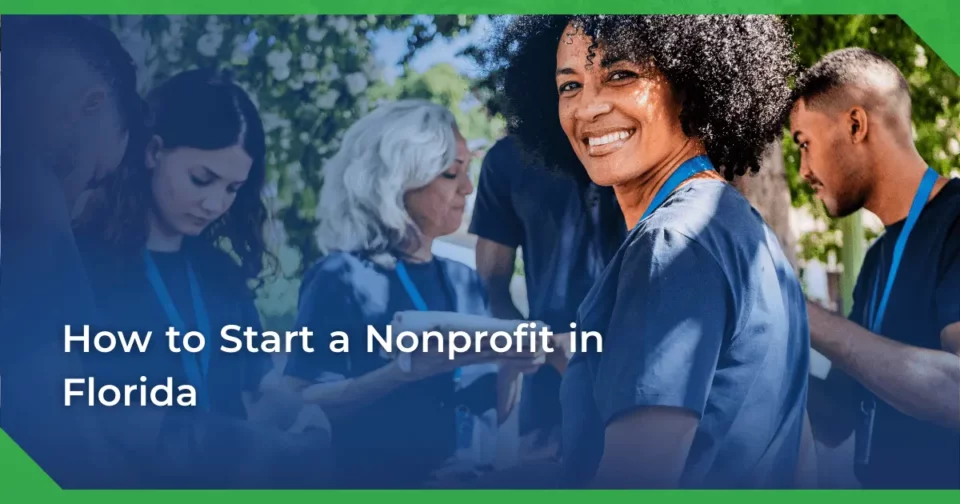
Whether you dream of feeding the hungry, supporting the arts, or protecting the environment, learning how to start a nonprofit in Florida could be your first step toward creating lasting change. But here’s the truth – while the impact potential is enormous, the setup process can feel overwhelming.
In fact, many aspiring founders get stuck navigating the complex maze of legal requirements, paperwork, and organizational decisions. That’s why experienced nonprofit consultants with 15+ years of nonprofit leadership experience recommend following a structured approach when launching your organization.
This comprehensive guide will walk you through every step of starting your Florida nonprofit – from testing your idea to setting up essential systems. Ready to turn your vision into reality? Let’s get started!
Check If Starting a Nonprofit is Right for You
Before diving into the legal paperwork of starting a nonprofit in Florida, pause to evaluate if this path aligns with your goals and capabilities. The nonprofit sector contributed $1.50 trillion to the United States economy in the first quarter of 2023, making it the third-largest private workforce in the country.
Key Questions to Ask Yourself
Starting a successful nonprofit requires careful consideration of several crucial factors:
- Mission and Impact: Define your specific purpose clearly. Ask yourself:
- What community need will your organization address?
- How will your services differ from existing nonprofits?
- What measurable impact do you aim to achieve?
- Time and Resources: Consider your commitment level:
- Can you dedicate substantial time to launch and manage the organization?
- Do you have the financial resources to cover startup costs?
- Are you prepared for the extensive paperwork and reporting requirements?
- Financial Sustainability: Analyze your funding strategy:
- How will you secure initial and ongoing funding?
- Have you created a basic budget covering operational costs?
- What diverse funding streams can you tap into?
- Leadership Skills: Evaluate your capabilities:
- Do you understand nonprofit governance requirements?
- Can you build and manage a board of directors?
- Are you comfortable with public scrutiny of financial decisions?
Alternatives to Consider
Additionally, several effective alternatives exist that might better suit your goals:
Partner with Existing Organizations
Rather than starting from scratch, consider joining forces with an established nonprofit. This approach allows you to:
- Avoid startup costs and administrative burdens
- Leverage existing infrastructure
- Gain valuable experience and connections
Explore Fiscal Sponsorship
Through fiscal sponsorship, you can operate under an existing tax-exempt organization’s umbrella. This option provides:
- Immediate tax-exempt status benefits
- Administrative support
- Focus on program activities rather than governance
Consider a Donor-Advised Fund
If your primary goal is grantmaking, a donor-advised fund offers:
- No formation costs
- More generous deduction limits
- Simplified administration without oversight responsibilities
Launch a Community Project
For initiatives with a specific timeline or goal, consider running a focused community project instead of forming a permanent organization. This allows you to:
- Test your concept
- Make immediate impact
- Avoid long-term administrative commitments
Remember, starting a nonprofit requires significant dedication, which is why many founders choose to work with fully managed services that handle the entire formation process. Studies show less than half of nonprofit startups survive beyond five years. Therefore, carefully weigh these alternatives against your original plan. Should you decide to proceed with forming a nonprofit, ensure you’re prepared for both the challenges and opportunities ahead.
Plan Your Florida Nonprofit
Once you’ve decided to establish a nonprofit in Florida, proper planning becomes the cornerstone of your future success. A thoughtful approach during this phase ensures your organization starts with a solid foundation.
Define Your Mission and Goals
Creating a compelling mission statement stands as your first crucial task. Your mission statement should capture the essence of your organization in one or two well-crafted sentences. Subsequently, this statement must accomplish two key objectives:
- Guide your current and ongoing work
- Create a compelling case for stakeholder support
Moreover, your mission statement needs to spotlight a current problem and demonstrate how your organization plans to address that issue. During this process, consider these essential elements:
- Values and Core Theme: Start by identifying your organization’s defining traits and the core idea that runs through everything you do
- Stakeholder Input: Include representatives from every level – staff, board, clients, supporters, and key community partners
- Language Choice: Use present tense for mission statements and avoid technical jargon or industry-specific terminology
Create a Basic Budget
A well-structured budget serves as the backbone of effective financial management. As nonprofit experts with decades of leadership experience recommend, your initial budget should:
- Project both expenses and revenue for your first year
- Categorize revenue by different funding sources
- Break down operating expenses by program and overhead costs
Furthermore, your budget must align directly with your strategic plan, ensuring every expense connects to a specific activity you aim to accomplish. The Better Business Bureau recommends allocating:
- At least 65% of funding toward programs
- No more than 35% on overhead expenses
Choose Your Service Area
Selecting your service area requires careful consideration of several factors. First, identify the specific community need or problem your nonprofit aims to address. Next, analyze:
- Geographic reach of your services
- Target population demographics
- Existing organizations serving similar needs
- Available resources in your chosen area
Your service area decision significantly impacts various aspects of your organization, including:
- Program development strategies
- Resource allocation
- Fundraising approaches
- Stakeholder engagement methods
Remember to document your service area clearly in your organizational plans, as this information proves vital for:
- Grant applications
- Strategic planning
- Board recruitment
- Donor communications
Professional nonprofit compliance specialists emphasize the importance of maintaining flexibility in your initial plans. As your organization grows, you may need to adjust your service area based on community needs and available resources.
Complete the Legal Requirements
Establishing your nonprofit’s legal foundation requires careful attention to detail and precise documentation. Let’s explore the essential steps to make your organization official in Florida, keeping in mind that nonprofit compliance can be made easy with the right guidance from experienced specialists who provide 1-on-1 support throughout the entire process.
Choose an Available Name
Your nonprofit’s name must be unique and include words like “Corporation” or “Incorporated.” The name cannot contain the word “company” or its abbreviation “co.” To secure your chosen name:
- Search the Florida Division of Corporations database
- Reserve the name for 120 days by paying $35.00
- Consider registering a fictitious name if needed ($50.00 fee)
File Articles of Incorporation
The Articles of Incorporation officially establish your nonprofit. This document must include:
- Organization name and street address
- Specific purpose statement
- Director election process
- Registered agent details
- Incorporator information
Filing can be completed online or by mail, though many organizations benefit from drop-off service for faster processing where available, with a total fee of $78.75 ($35.00 filing fee, $35.00 registered agent designation fee, and $8.75 convenience fee). Online submissions typically process within 1-3 business days, whereas mail submissions take 8-17 days.
Importantly, your Articles must contain IRS-approved purpose and dissolution clauses to qualify for 501(c)(3) tax-exempt status. Without these specific provisions, the IRS will reject your exemption application.
Get Your EIN Number
An Employer Identification Number (EIN) serves as your nonprofit’s federal tax ID, essential even if you don’t plan to hire employees, as detailed in IRS guidelines on Employer Identification Number. To obtain your EIN:
- Wait until your organization is legally formed before applying, according to IRS guidance on obtaining an EIN for exempt organizations
- Complete Form SS-4
- Apply online through the IRS website
- Receive confirmation typically within minutes
Many nonprofit formation services include EIN acquisition as part of their comprehensive support, ensuring this critical step is handled correctly.
Apply for Tax Exemption
Securing 501(c)(3) status requires careful preparation and specific documentation. The process, which comes with a 100% IRS approval guarantee when handled by experienced specialists, involves:
Form Selection:
- Form 1023 (standard application)
- Form 1023-EZ (streamlined version for smaller organizations with annual gross receipts under $50,000 and total assets below $250,000)
Key Requirements:
- Submit application electronically through Pay.gov
- Include appropriate user fee
- File within 27 months of formation, as outlined in IRS requirements for tax-exempt recognition applications
- Provide detailed information about:
- Organizational structure
- Governance policies
- Financial projections
- Operational plans
Note that the same IRS forms (1023/1024) are used for both new applications and reinstating a revoked tax-exempt status. In most cases, submitting an entirely new form proves to be the most effective approach for reinstatement.
Remember that forming your nonprofit does not automatically grant tax-exempt status. Until you receive your IRS determination letter, donations to your organization are not tax-deductible for donors. Additionally, many states require separate state income tax exemption applications after you obtain federal 501(c)(3) status.
Florida nonprofits must file annual reports between January 1st and May 1st to maintain active status, as per Florida Department of State (Sunbiz) instructions for nonprofit annual reports. Failing to file these reports can result in administrative dissolution of your organization. With comprehensive compliance support from one partner using a secure, SOC 2 Type II compliant client portal, you can ensure all these requirements are met without the hassle of managing multiple vendors. Track every step in real-time and receive direct notification if any correspondence is received.
Build Your Nonprofit Board
A strong board of directors forms the backbone of your nonprofit’s governance structure. As you establish your organization in Florida, understanding the essential board positions and recruitment strategies becomes crucial for long-term success.
Required Board Positions
While the State of Florida mandates a minimum of three directors for nonprofit organizations, the IRS requires at least three directors for 501(c)(3) organizations. We recommend following the IRS standard of three directors to ensure federal compliance. Your board must include these fundamental positions:
Board President/Chair
The board president leads the volunteer leadership team and:
- Oversees board operations and facilitates meetings
- Partners with executive director on agenda preparation
- Takes charge of executive director evaluations
- Serves as organizational spokesperson
Board Treasurer
This position demands financial expertise to:
- Manage budgetary oversight
- Lead annual audit processes
- Chair the finance committee
- Ensure accurate financial reporting
Board Secretary
The secretary maintains organizational records through:
- Scheduling and documenting board meetings
- Managing official documents and contracts
- Tracking board member terms
- Monitoring legal compliance
Professional nonprofit compliance specialists with 15+ years of nonprofit leadership experience emphasize that board members cannot receive compensation for their board duties, although they may be paid for other unrelated services to the organization.
Finding Qualified Directors
Building an effective board requires strategic recruitment efforts. First, assess your current needs using these criteria:
Skills and Expertise
- Financial management capabilities
- Legal knowledge
- Program development experience
- Community connections
Diversity Considerations
Successful boards reflect their communities through:
- Age representation
- Gender balance
- Cultural backgrounds
- Professional experiences
To locate potential board members, consider these proven strategies:
- Board Matching Programs
Several platforms connect nonprofits with qualified candidates:- BoardBuild: Offers free position posting and access to trained candidates
- BoardProspects: Provides database of qualified prospects
- LinkedIn for Nonprofits: Grants free access to talent finder accounts
- Strategic Recruitment
Labyrinth’s experienced guidance and support for board recruitment recommend these approaches:- Form a dedicated nominating committee
- Evaluate candidates through structured interviews
- Check references thoroughly
- Assess passion for your mission
Once identified, potential board members should receive clear information about:
- Time commitments
- Financial responsibilities
- Meeting schedules
- Committee assignments
After selection, ensure proper onboarding through:
- Comprehensive orientation sessions
- Access to organizational documents
- Mentorship programs
- Regular training opportunities
Remember that board development remains ongoing. Establish regular evaluation processes and provide continuous learning opportunities to strengthen your leadership team’s effectiveness, as highlighted in a University of Florida IFAS Extension publication on board development.
Set Up Essential Systems
Setting up robust operational systems forms the foundation for your nonprofit’s daily activities. As experienced nonprofit founders who work with comprehensive compliance support know, proper infrastructure enables smooth operations and sustainable growth.
Banking and Financial Tools
Selecting appropriate financial tools starts with establishing a dedicated nonprofit bank account. You’ll need to obtain your EIN before opening any bank accounts. Most financial institutions require:
- Articles of Incorporation
- EIN documentation
- Board member information
- Tax-exempt status paperwork (once obtained)
Several banks offer specialized nonprofit services:
- Payment Processing: Solutions through PayPal and Square provide discounted rates for nonprofits, as per Florida Department of State (Sunbiz) information on nonprofit corporation filing
- Online Banking: Access to real-time transaction monitoring and secure fund transfers
- Treasury Solutions: Tools for managing donations, payments, and cash flow optimization
Financial compliance experts with transparent pricing structures recommend implementing these essential tools:
- ACH origination for automated payments
- Remote deposit capture
- Merchant card services
- Lockbox services for donation processing
Record Keeping Software
Proper accounting software streamlines financial management and ensures compliance. Modern nonprofit accounting platforms offer:
Core Features
- Fund accounting capabilities
- Grant tracking
- Project-based accounting
- Real-time financial visibility
- Role-based reporting
Key Benefits
- Automated routine tasks
- Precise donation tracking
- Simplified financial reporting
- Enhanced transparency
- Streamlined tax preparation
Popular software options provide:
- Customizable reporting tools
- Integration with banking systems
- Donor management features
- Budget tracking capabilities
Communication Platforms
Effective communication tools support both internal operations and external engagement. Essential platforms include:
Internal Communications
- Project Management: Asana or Trello for task tracking
- Team Messaging: Slack for real-time collaboration
- Video Conferencing: Zoom or Google Hangouts for remote meetings
External Communications
- Email Marketing: MailChimp or Campaign Monitor for donor engagement
- SMS Services: Text messaging platforms with 99% open rates
- Social Media Management: Tools for consistent stakeholder updates
Consider these factors when selecting communication tools:
- Integration capabilities with existing systems
- Scalability for organizational growth
- User-friendly interfaces
- Cost-effectiveness
- Mobile accessibility
Remember to implement proper security measures across all systems:
- Regular data backups
- Strong password policies
- Multi-factor authentication
- Access control protocols
- Compliance monitoring
With modern compliance technology and a secure client portal for tracking registrations and deadlines, you can focus on your mission while experienced specialists handle the complex compliance requirements. Many nonprofits find that bundled services, which often include first-year fundraising registration, provide the most comprehensive support for their operational needs.
Beyond these core systems, remember that achieving compliance extends to state-level requirements. Florida requires annual reports, and many organizations must also register separately for charitable solicitation before fundraising. Professional compliance services can help ensure you meet all ongoing obligations while you concentrate on fulfilling your mission.
Conclusion
Starting a nonprofit in Florida requires careful planning, dedication, and the right systems. Your journey from initial concept to operational organization demands attention to detail at every step.
Most importantly, take time to evaluate if starting a nonprofit aligns with your goals before diving into the process. Professional guidance from specialists with 15+ years of nonprofit leadership experience can help you navigate complex requirements while avoiding common pitfalls that many new nonprofits face.
Remember that success depends on strong foundations. Building the right board, establishing proper financial systems, and maintaining clear communication channels create the backbone of your organization. Expert nonprofit compliance specialists who provide end-to-end formation support with a 100% IRS approval guarantee emphasize that these elements work together to support your mission and drive sustainable growth.
Above all, stay focused on your mission and the community you aim to serve. With proper planning, dedicated leadership, and efficient systems—including secure client portals that provide transparent tracking of every step—your Florida nonprofit can make lasting positive changes. Start your journey today by following this comprehensive guide, and watch your vision transform into reality.


![Your 501(c)(3) Approval Guaranteed{{ include_custom_fonts({"Museo Sans":["Bold","Bold Italic","Regular","Regular Italic"]}) }}](https://no-cache.hubspot.com/cta/default/560178/interactive-194101957210.png)
![Start Your Nonprofit with Confidence{{ include_custom_fonts({"Museo Sans":["Bold","Bold Italic","Regular","Regular Italic"]}) }}](https://no-cache.hubspot.com/cta/default/560178/interactive-194101957151.png)
